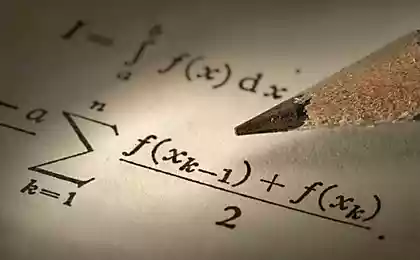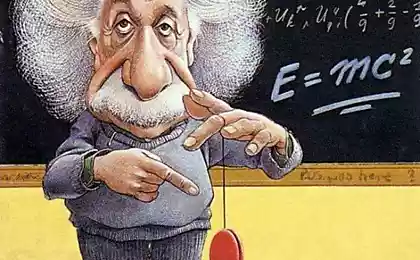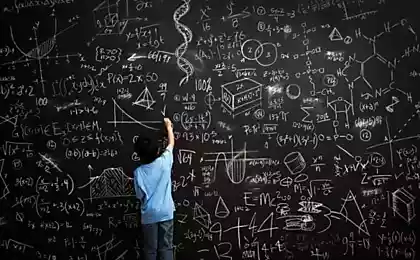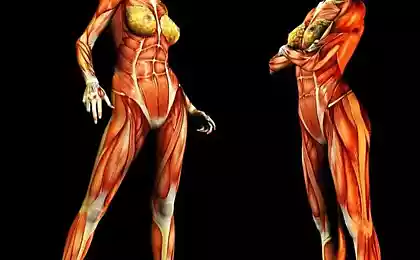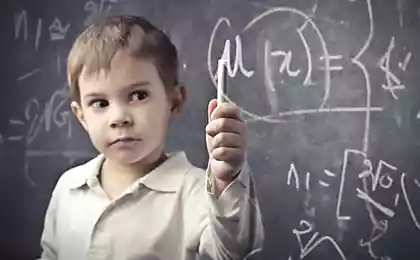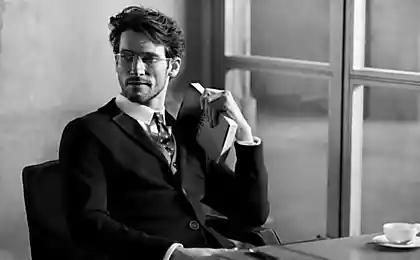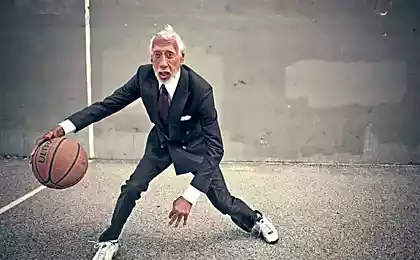627
The formula for success. How mathematics helps people to live
How to stop failing deadlines and procrastinate, learn to make important decisions and to love myself with the help of mathematics? We had an answer from the author of the recently published Russian book "Think like a mathematician" and a popular course on Coursera "Learning How to Learn" by Barbara Oakley, Ph. D., consulting engineer and researcher of brain stem cells.
If you are strong in math, you are much harder to fool
I have been exploring aspects of human intelligence. Now I'm working on a book "Mindshift: How Ordinary and Extraordinary People Have Transformed Their Lives Through Learning — And You Can Too" ("Change of thinking: how training changed the lives of ordinary and extraordinary people — and your it, too, will change"). It is dedicated to amazing stories about people who have changed their lives and careers with new approaches to learning.
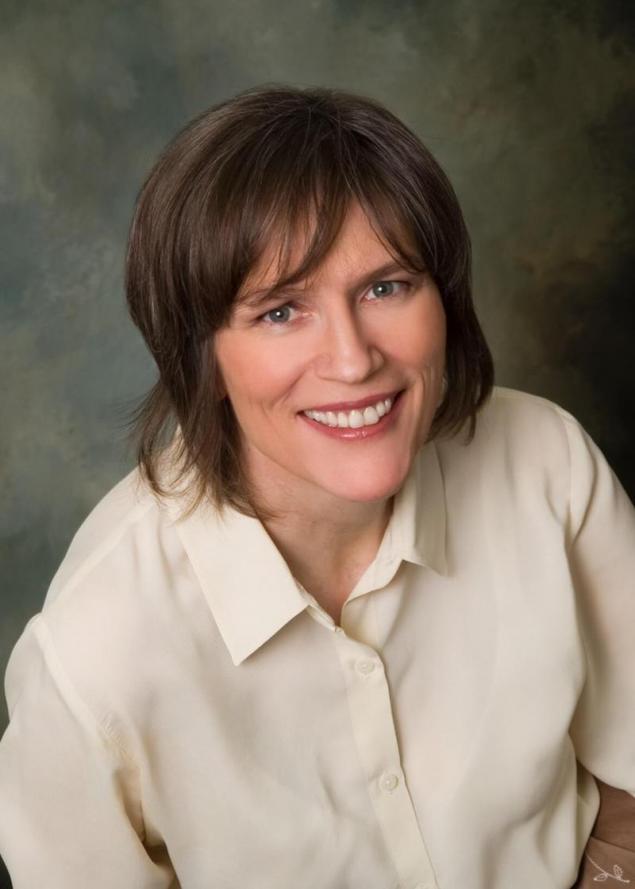
Barbara Oakley
There are many ways to overcome the fear of natural and exact Sciences. Outstanding scientists and brilliant minds, as a rule, sooner master the effective techniques of training, because they start training almost from infancy. In fact, these techniques of learning can master any man in any age. If I had not studied a foreign language, I wouldn't have thought that there are specially structured practical techniques.
When you go to the gym, you do in the gym to develop muscles. You don't think I'll be able to pump up the chic press, every day sitting on the sidewalk. For mathematics you can apply the same principle. It helps to develop invisible mental "muscle" that can be useful for you in the most unexpected areas. For example, if I need to hire a Manager in the store, or develop an online course, I would rather prefer a candidate with a strong analytical thinking. The world is changing, and the ability to cope with the technical and mathematical challenges is becoming increasingly important.
Knowledge of natural Sciences warns people against "magical thinking"Mathematics and other Sciences can help you to make an important decision that will affect your life, and they will help you cope with everyday challenges. Knowledge in mathematics and natural Sciences warn people away from "magical thinking". When it comes to salary, sometimes I think that money will just appear out of thin air, and I get everything I want without any effort. But this is not happening. Money also does not appear in the state budget magically though, of course, the state often causes us to believe otherwise. Natural-scientific background just makes us smarter and allows you to step back to observe things. For example, we all know how important a good environment, and we understand that we should fight to make the world has become clean and green. However, some environmental initiatives, such as electronic cars, in fact, harmful to the environment. Simply put, people who have no mathematical and natural scientific knowledge are much easier to fool, because they do not know how skeptical look at things.
Mathematicians like to teach abstract math that seems divorced from reality, but actually helps to master the skills that can be easily moved to different areas of professional activities. To study mathematics as applied to one area, such as accounting, is inefficient because it restricts the flexibility of your thinking and prevents you from applying new knowledge and skills in a different context. Is that still refuse to learn a foreign language — then you artificially forever limit my thinking in just one language. If you are afraid of equations and formulas and don't know how to apply imagination, try to think of them as poems.
The equation is only a collection of coded concepts; in them, as in poetry, there is a deeper meaning. Einstein was able to describe the photon through imagination, not through mathematics.
It is known that in mathematics he was not so strong and often asked for help to other mathematicians to continue the study. But imagination he was not to occupy: he imagined himself flying photon and thought about how it would be perceived by the other photon. People's imagination is developed much stronger than they think. If you think that it's not about you, think about it: if you have the imagination to love and educate your child, you have enough imagination and to create wonderful new world.
There are many books that will help you understand the mathematics. My favorite is the "Simple calculation" ("Calculus Made Easy") Silvanus Thompson, "The World According to Wavelets: The Story of a Mathematical Technique in the Making" ("transforming the world through wavelets: the story of the development of mathematical methods") Barbara Burke Hubbard and the three-volume edition of lectures on physics Richard Feynman. All these activities help to explore mathematics from different angles and explain how it relates to reality.
Your success has nothing to do with the extent of your genius , I decided to get an engineering degree and only 26 years old. It caused me a lot of hate and brought a lot of suffering in my first year encouraged me a rare insight. Before I felt that "can do it", it's been about a year and a half. Before that, I studied Russian language, received a scholarship from the non-service of training of reserve officers and a BA in Slavic languages and literature. I had the chance to become an expert in the signal corps, but I hated math and feared it.
If you too are afraid of mathematics and natural Sciences, you should know that your brain constantly performs complicated calculations, just you are unaware. This allows you to catch the ball and go around the road well in the car. We solve the equations and produce complex calculations unconsciously and do not suspect that the solution we already know because we all have the ability to math and science. It seems to us that math is more difficult than the Humanities, just because it is encoded in formulas and abstract concepts.
I believe there are thousands of "right" ways to educate children, so do not gravitate to any particular school or system. Too often we stress that children need to approach learning with passion, although in reality the process of cognition itself must awaken their passion. Education should cultivate in students creativity, curiosity and desire for discovery. However, creativity needs to be supported by confident knowledge in a certain subject. If you have awareness, there is an extensive set of facts, it is unlikely you will be able to make creative discovery. Although children learn in the same school for many years, their achievements are not aligned, because the success of people greatly depends on their social environment and biological predisposition. But in reality, perseverance is much more than the intellect. A "middling" went much further than the very gifted people.
Talented people also face many challenges: their child being bullied by classmates, they begin to suppress their abilities and looking for problems where they really are not. Talented people are much more likely to fall into procrastination, because in the beginning this approach was effective and, as adults, they just can't rebuild. Students constantly compete with more gifted classmates and trying to catch up with them, they severely limit themselves in time which can be spent on learning and are falling further behind. You need to take yourself and your features. If you feel you have stalled, you'd better ask for advice from competent people. Before doing this try to solve the problem yourself, then you'll respond better to an explanation of another person. In University, I was mad at their teachers for what do not understand, although I needed to make some independent steps.
I'm sure that stupid people exist! I just know it, because itself from time to time been stupid. Everyone is different: some students are introduced to useful techniques of learning and still prefer not to use them. This does not mean that they are stupid, but I feel sorry for them, because they often deceive themselves about what they are truly capable of. Nobel laureate Richard Feynman liked to tell about his IQ as 125 to prove that success does not only depend on innate genius. He achieved success through hard work, physics and math for many years.
To rebuild your brain not as difficult as it seems We think in two different modes: focused and diffused. There is a hypothesis that this is because the spinal had to solve two major problems at once: to monitor the movement of enemies (multiple mode) and to search for food (focused mode). If each of the hemispheres is aimed at a certain type of perception, the chances of survival increase.
In humans the left hemisphere is associated with focused attention and specializiruetsya on logical thinking; the right is responsible for the processing of emotions, attention span and social communication. It is impossible to obtain a broad view about the world without the participation of the right hemisphere. For a successful study of Sciences and arts, alternate the two types of thinking. All known in the history of science of illumination, as if whispered by someone over, associated with the inclusion of the diffuse mode of thinking after a long period of concentrated work. The idea that some people dominated by the right hemisphere, and the other — left, incorrect. The brain is very difficult arranged. We deceive ourselves when trying to simplify his work. A wonderful book Michael Anderson "After Phrenology" ("In the footsteps of phrenology") is very lucidly explains to the reader why a modular approach to understanding the brain is problematic.
I can't believe that students spend about 16 years in schools before receiving a bachelor's degree, but they have no course on effective learning. On the other hand, the course for effective learning in the traditional educational system will look something like this: three weeks will be spent on education, three on various pedagogical theories, three — on lectures about how little children learn. Maybe only in the last one-two weeks students will be able to get some practical skills. Since most teachers are not familiar with neuroscience, they will not be able to tell anything about such vital things as focused and diffused mode of thinking, or pain centers in the brain that cause us to procrastinate. I think modern students are very lucky that they have access to such books as "Think like a mathematician" and such courses as "Learning How to Learn" on Coursera. The information that is given there will be useful for anyone who learns something. It would be great if all of these approaches naturally embedded in school and University education. Fortunately, it is beginning to happen.
All insight, as if whispered by someone over associated with the inclusion of the diffuse mode of thinking after a long period of concentrated work
To change the University's approaches to learning is still to move the cemetery to another location. We can't expect this from the dead. I'm sure that universities will be able to change only as a result of outside pressure. That is why disruptive technology of mass online learning is so important. This applies to my course "Learning How to Learn", partly duplicating the contents of the book "Think like a mathematician". This is the most popular course in the world, it has enrolled more than a million listeners in the last year alone. And there's a reason: it contains powerful, useful, and effective ideas that can be confirmed scientifically. So now, all the changes depend on the people themselves.
Many students still do not know that field notes more effective than simple underlining in the book, but a simple reading cannot replace the data retrieval from memory. Constant re-reading lecture notes or a textbook gives the illusion of competence, though, if you close the book or notebook, you realize that in your mind there's nothing left. Instead, regularly check yourself and play in the mind the material studied.
It is important to explain that at school, children learn not necessarily "wrong". Another thing is that some teaching methods more effective than others, and specialized courses also help to meet them.All people are different from each other, the main thing is to integrate these approaches into their own lives. The first and most important step — just stop procrastinating to reduce stress, improve learning efficiency and to free up a lot of time for fun and relaxation. We procrastinate when we hate something to do. If you are afraid of mathematics, then the idea of it painful.
If you need to start doing mathematics, the pain centers in your brain aktiviziruyutsya. It is important to clarify that once you start to do, the pain disappears. N
Uzhno to introduce changes gradually. If your main problem is procrastination, experience the "tomato method": start the timer for 25 minutes and concentrated work. This will help you focus on a short period of time. At this time you cannot check social network, to talk on the phone and look for something on the Internet.
The secret is that 25 minutes is a short period of time, so you can console yourself that it will be over soon and you will be able to relax a bit. This method is very useful to support lists the key tasks for the day (5-10 points) and weekly (up to 20 points) to keep track of your progress and not miss important things. Don't forget to "eat the frogs in the morning", that is perform the most important and unpleasant work early in the day. With the study of mathematics and science related to the concept called "installation effect". It is associated with moments when an initial idea or a thought lets search the best ideas or solutions.
Very often this initial momentum leads to an incorrect result. When you long struggling with the task, this barrier in your mind preventing you to find the right solution. I regularly use are described in the book methods — for example, always use "principle of the tomato". Also, when I read the scientific literature I always look and check that I can remember. I think these methods can help in the study of complex abstract concepts, such as philosophy. published
P. S. And remember, just changing your mind — together we change the world! © Join us at Facebook , Vkontakte, Odnoklassniki
Source: theoryandpractice.ru/posts/11706-barbara-oakley
If you are strong in math, you are much harder to fool
I have been exploring aspects of human intelligence. Now I'm working on a book "Mindshift: How Ordinary and Extraordinary People Have Transformed Their Lives Through Learning — And You Can Too" ("Change of thinking: how training changed the lives of ordinary and extraordinary people — and your it, too, will change"). It is dedicated to amazing stories about people who have changed their lives and careers with new approaches to learning.

Barbara Oakley
There are many ways to overcome the fear of natural and exact Sciences. Outstanding scientists and brilliant minds, as a rule, sooner master the effective techniques of training, because they start training almost from infancy. In fact, these techniques of learning can master any man in any age. If I had not studied a foreign language, I wouldn't have thought that there are specially structured practical techniques.
When you go to the gym, you do in the gym to develop muscles. You don't think I'll be able to pump up the chic press, every day sitting on the sidewalk. For mathematics you can apply the same principle. It helps to develop invisible mental "muscle" that can be useful for you in the most unexpected areas. For example, if I need to hire a Manager in the store, or develop an online course, I would rather prefer a candidate with a strong analytical thinking. The world is changing, and the ability to cope with the technical and mathematical challenges is becoming increasingly important.
Knowledge of natural Sciences warns people against "magical thinking"Mathematics and other Sciences can help you to make an important decision that will affect your life, and they will help you cope with everyday challenges. Knowledge in mathematics and natural Sciences warn people away from "magical thinking". When it comes to salary, sometimes I think that money will just appear out of thin air, and I get everything I want without any effort. But this is not happening. Money also does not appear in the state budget magically though, of course, the state often causes us to believe otherwise. Natural-scientific background just makes us smarter and allows you to step back to observe things. For example, we all know how important a good environment, and we understand that we should fight to make the world has become clean and green. However, some environmental initiatives, such as electronic cars, in fact, harmful to the environment. Simply put, people who have no mathematical and natural scientific knowledge are much easier to fool, because they do not know how skeptical look at things.
Mathematicians like to teach abstract math that seems divorced from reality, but actually helps to master the skills that can be easily moved to different areas of professional activities. To study mathematics as applied to one area, such as accounting, is inefficient because it restricts the flexibility of your thinking and prevents you from applying new knowledge and skills in a different context. Is that still refuse to learn a foreign language — then you artificially forever limit my thinking in just one language. If you are afraid of equations and formulas and don't know how to apply imagination, try to think of them as poems.
The equation is only a collection of coded concepts; in them, as in poetry, there is a deeper meaning. Einstein was able to describe the photon through imagination, not through mathematics.
It is known that in mathematics he was not so strong and often asked for help to other mathematicians to continue the study. But imagination he was not to occupy: he imagined himself flying photon and thought about how it would be perceived by the other photon. People's imagination is developed much stronger than they think. If you think that it's not about you, think about it: if you have the imagination to love and educate your child, you have enough imagination and to create wonderful new world.
There are many books that will help you understand the mathematics. My favorite is the "Simple calculation" ("Calculus Made Easy") Silvanus Thompson, "The World According to Wavelets: The Story of a Mathematical Technique in the Making" ("transforming the world through wavelets: the story of the development of mathematical methods") Barbara Burke Hubbard and the three-volume edition of lectures on physics Richard Feynman. All these activities help to explore mathematics from different angles and explain how it relates to reality.
Your success has nothing to do with the extent of your genius , I decided to get an engineering degree and only 26 years old. It caused me a lot of hate and brought a lot of suffering in my first year encouraged me a rare insight. Before I felt that "can do it", it's been about a year and a half. Before that, I studied Russian language, received a scholarship from the non-service of training of reserve officers and a BA in Slavic languages and literature. I had the chance to become an expert in the signal corps, but I hated math and feared it.
If you too are afraid of mathematics and natural Sciences, you should know that your brain constantly performs complicated calculations, just you are unaware. This allows you to catch the ball and go around the road well in the car. We solve the equations and produce complex calculations unconsciously and do not suspect that the solution we already know because we all have the ability to math and science. It seems to us that math is more difficult than the Humanities, just because it is encoded in formulas and abstract concepts.
I believe there are thousands of "right" ways to educate children, so do not gravitate to any particular school or system. Too often we stress that children need to approach learning with passion, although in reality the process of cognition itself must awaken their passion. Education should cultivate in students creativity, curiosity and desire for discovery. However, creativity needs to be supported by confident knowledge in a certain subject. If you have awareness, there is an extensive set of facts, it is unlikely you will be able to make creative discovery. Although children learn in the same school for many years, their achievements are not aligned, because the success of people greatly depends on their social environment and biological predisposition. But in reality, perseverance is much more than the intellect. A "middling" went much further than the very gifted people.
Talented people also face many challenges: their child being bullied by classmates, they begin to suppress their abilities and looking for problems where they really are not. Talented people are much more likely to fall into procrastination, because in the beginning this approach was effective and, as adults, they just can't rebuild. Students constantly compete with more gifted classmates and trying to catch up with them, they severely limit themselves in time which can be spent on learning and are falling further behind. You need to take yourself and your features. If you feel you have stalled, you'd better ask for advice from competent people. Before doing this try to solve the problem yourself, then you'll respond better to an explanation of another person. In University, I was mad at their teachers for what do not understand, although I needed to make some independent steps.
I'm sure that stupid people exist! I just know it, because itself from time to time been stupid. Everyone is different: some students are introduced to useful techniques of learning and still prefer not to use them. This does not mean that they are stupid, but I feel sorry for them, because they often deceive themselves about what they are truly capable of. Nobel laureate Richard Feynman liked to tell about his IQ as 125 to prove that success does not only depend on innate genius. He achieved success through hard work, physics and math for many years.
To rebuild your brain not as difficult as it seems We think in two different modes: focused and diffused. There is a hypothesis that this is because the spinal had to solve two major problems at once: to monitor the movement of enemies (multiple mode) and to search for food (focused mode). If each of the hemispheres is aimed at a certain type of perception, the chances of survival increase.
In humans the left hemisphere is associated with focused attention and specializiruetsya on logical thinking; the right is responsible for the processing of emotions, attention span and social communication. It is impossible to obtain a broad view about the world without the participation of the right hemisphere. For a successful study of Sciences and arts, alternate the two types of thinking. All known in the history of science of illumination, as if whispered by someone over, associated with the inclusion of the diffuse mode of thinking after a long period of concentrated work. The idea that some people dominated by the right hemisphere, and the other — left, incorrect. The brain is very difficult arranged. We deceive ourselves when trying to simplify his work. A wonderful book Michael Anderson "After Phrenology" ("In the footsteps of phrenology") is very lucidly explains to the reader why a modular approach to understanding the brain is problematic.
I can't believe that students spend about 16 years in schools before receiving a bachelor's degree, but they have no course on effective learning. On the other hand, the course for effective learning in the traditional educational system will look something like this: three weeks will be spent on education, three on various pedagogical theories, three — on lectures about how little children learn. Maybe only in the last one-two weeks students will be able to get some practical skills. Since most teachers are not familiar with neuroscience, they will not be able to tell anything about such vital things as focused and diffused mode of thinking, or pain centers in the brain that cause us to procrastinate. I think modern students are very lucky that they have access to such books as "Think like a mathematician" and such courses as "Learning How to Learn" on Coursera. The information that is given there will be useful for anyone who learns something. It would be great if all of these approaches naturally embedded in school and University education. Fortunately, it is beginning to happen.
All insight, as if whispered by someone over associated with the inclusion of the diffuse mode of thinking after a long period of concentrated work
To change the University's approaches to learning is still to move the cemetery to another location. We can't expect this from the dead. I'm sure that universities will be able to change only as a result of outside pressure. That is why disruptive technology of mass online learning is so important. This applies to my course "Learning How to Learn", partly duplicating the contents of the book "Think like a mathematician". This is the most popular course in the world, it has enrolled more than a million listeners in the last year alone. And there's a reason: it contains powerful, useful, and effective ideas that can be confirmed scientifically. So now, all the changes depend on the people themselves.
Many students still do not know that field notes more effective than simple underlining in the book, but a simple reading cannot replace the data retrieval from memory. Constant re-reading lecture notes or a textbook gives the illusion of competence, though, if you close the book or notebook, you realize that in your mind there's nothing left. Instead, regularly check yourself and play in the mind the material studied.
It is important to explain that at school, children learn not necessarily "wrong". Another thing is that some teaching methods more effective than others, and specialized courses also help to meet them.All people are different from each other, the main thing is to integrate these approaches into their own lives. The first and most important step — just stop procrastinating to reduce stress, improve learning efficiency and to free up a lot of time for fun and relaxation. We procrastinate when we hate something to do. If you are afraid of mathematics, then the idea of it painful.
If you need to start doing mathematics, the pain centers in your brain aktiviziruyutsya. It is important to clarify that once you start to do, the pain disappears. N
Uzhno to introduce changes gradually. If your main problem is procrastination, experience the "tomato method": start the timer for 25 minutes and concentrated work. This will help you focus on a short period of time. At this time you cannot check social network, to talk on the phone and look for something on the Internet.
The secret is that 25 minutes is a short period of time, so you can console yourself that it will be over soon and you will be able to relax a bit. This method is very useful to support lists the key tasks for the day (5-10 points) and weekly (up to 20 points) to keep track of your progress and not miss important things. Don't forget to "eat the frogs in the morning", that is perform the most important and unpleasant work early in the day. With the study of mathematics and science related to the concept called "installation effect". It is associated with moments when an initial idea or a thought lets search the best ideas or solutions.
Very often this initial momentum leads to an incorrect result. When you long struggling with the task, this barrier in your mind preventing you to find the right solution. I regularly use are described in the book methods — for example, always use "principle of the tomato". Also, when I read the scientific literature I always look and check that I can remember. I think these methods can help in the study of complex abstract concepts, such as philosophy. published
P. S. And remember, just changing your mind — together we change the world! © Join us at Facebook , Vkontakte, Odnoklassniki
Source: theoryandpractice.ru/posts/11706-barbara-oakley

